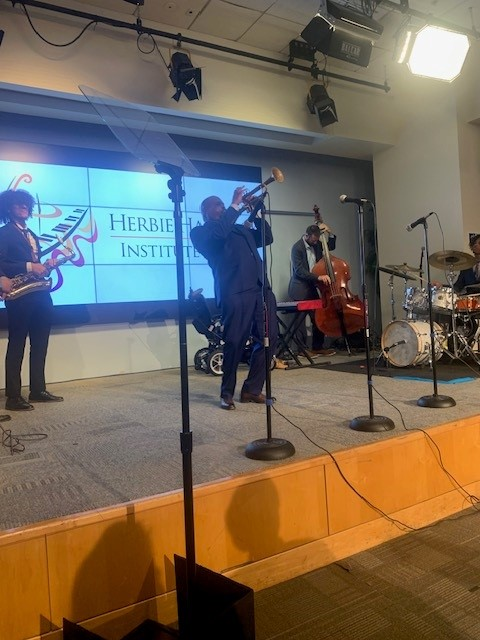I hope you do not mind my somewhat stream of consciousness.
A couple of years ago for Native American Heritage month in November, I did a joint informal program (in words and sounds) with a music representative of the Smithsonian Museum of the American Indian on the many contributions of indigenous people to rock, pop, blues, jazz, folk, and country. Among many other artists, I talked about Robbie 's contributions as a child of a mom who was Cayuga and Mohawk, raised on the Six Nations Reserve southwest of Toronto, Ontario, and a son of a Jewish biological dad. I noted his Canadian roots and his ability to compose and perform the perfect Americana earth rock song book.
After seeing Robbie as a backup to Ronnie Hawkins and rockabillying to "Susie Q," and other billydom classics, I first saw Robbie live as a member of the Hawks, the backup band for Dylan relatively shortly after Dylan went partly and then almost fully electric. That first live appearance was at the Philadelphia Academy of Music (a classical music venue similar to NYC's Carnegie) after winning a radio trivia contest for tickets. Dylan did the first half of the concert acoustically and then after intermission, brought up the electric guitar and harmonica, and the Hawks, and they played masterfully while being soundly booed by the half or more of the audience that were folkie purists. I was slightly conflicted by my then fuller allegiance to the more pure folk, but at the same excited by the reworking of some of the Dylan “classic” songs turning electric and rocking and shaking the classic hall.
I next saw Robbie at the Brooklyn Academy of Music with his new group, the Band, making their first "major" appearance outside of their now legendary Big Pink Woodstock home base. It was their professional debut as a group, and it was my first voluntary assignment as a rock critic for the regional, almost legendary "Good Times/Action World" publication--now in its 54th year..
At first, the Band seemed a little shaky as they quickly worked into their more natural groove, while I was trying to find my inner voice as a critic. Their earthly driven sounds of American story-ied life, "driving ol Dixie down," and pulling into "Nazareth," quickly lifted my confidence to appreciate on multi-levels this very basic music and we together became a natural force of unified nature.
Robbie contributed a lot to this North Americana life while rockabillying, Dylan-backing, Banding it and soloing over the years, and now he has danced his "last waltz: and returned to the earth and nature he lifted up, Thanks for reading and rocking through.







